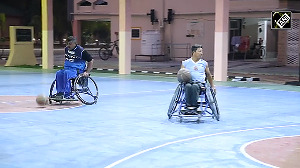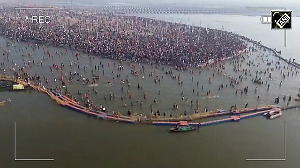"If it's necessary, we will study taking legal measures which could lead to these directors being removed from the administration of any sport for up to 10 years," said sports minister Agnelo Queiroz in a television interview.
Officials from the Group of 13, which includes some of the country's leading clubs, said on Tuesday they were halting the Brazilian championship because they were unable to comply with a new law known as the "Supporters Statute" introduced by the government last week.
The law aims to improve conditions for Brazilian fans, who face decrepit stadiums, chaotic ticket sales and violence.
Fans and media interpreted the stoppage as a rebellion against the law.
"It's blackmail against society as a whole," said the sports daily Lance in a front-page editorial. "The bad directors just want to keep everything as it is. They don't want to publish their accounts. They're afraid of the law."
Angry supporters variously described the stoppage as "absurd" and "lack of respect."
"It's difficult to believe that the country which has won five World Cups still isn't capable of organising its football," said one, who wrote to a sports programme on Globo television.
CLEAN TOILETS
The law, a response to Congressional inquiries into alleged corruption and mismanagement in Brazilian soccer, forces clubs to announce attendances and gate receipts at every game, provide numbered places on terraces for all supporters, a receipt for every ticket sold, one ambulance for every 10,000 fans and clean toilets.
It also demands video monitoring at stadiums with a capacity of more than 20,000 and will hold club directors responsible for inadequate security.
Eurico Miranda, president of Vasco da Gama and one of the fiercest opponents of reforming Brazilian soccer, said the law was unworkable.
"This law was not meant to be implemented," he said. "It's a witch hunt against some directors."
But Corinthians director Antonio Roque Citadini disagreed: "This was approved in Congress and we can't have a civil resurrection."
Paulo Carneiro, president of the Salvador- based club Vitoria, predicted the stoppage would be short-lived.
"Ten years is a long time. There will be football on Sunday. I'm certain about this."








 © 2025
© 2025